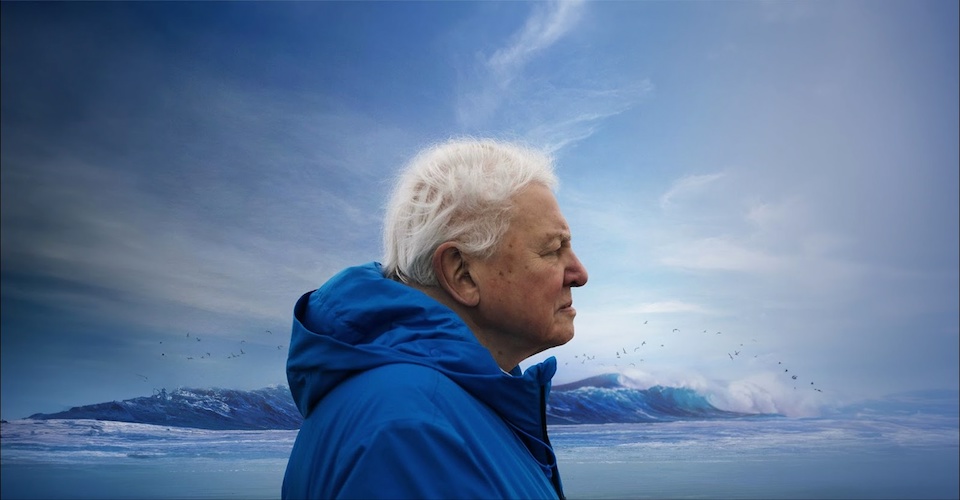Review: National Geographic's "Ocean" Proves David Attenborough is Earth's Best Publicist
David Attenborough might be the best chance we, as a human society, have against climate catastrophe. As the world continually fights to make haste with the ever increasing natural and manmade disasters affecting our globe, there’s something in a nice, flaw-free, older man telling us that we need to look around and change our ways. (Similar to when Tom Hanks’ SNL monologue had him just playing the role of a confident father figure.)
National Geographic’s new documentary Ocean takes Attenborough’s reputation as the preeminent scholar on our natural world and uses it to present facts about the beauty of our oceans and what we must do to keep them safe. Across the film’s run time, Attenborough’s narration deftly flips between exploring the wonders of the untouched and showcasing our maniacal acts that are killing the ecosystem.
Presented at the film’s beginning, our understanding of the Earth’s oceans is a rather new science. Scuba was invented less than a century ago, and with over 70% of the planet’s surface covered in ocean, it remains remarkably unexplored. Repeated by Attenborough, our solar system has been more explored than our own oceans. Yet, even with the lack of knowledge of their secrets, the human race continues to abuse it to no end.
The film doesn’t shy away from showing some bad atrocities. A scene showing a ginormous metal bar and net grazing the floor of the ocean, collecting creatures, and throwing away three-fourths of their collection is despicable. Even as someone who enjoys eating fish, seeing unnecessarily captured sea creatures dying for no overall benefit is disgusting. The conversation later turns into the overharvesting of our oceans, as larger tankers and corporations are capturing so much fish that the small coastal communities that rely on them for food or finances are left to fend for themselves. Colonialism is alive and well, it has just moved from land to sea.
Ocean takes part in a beautiful balancing act, highlighting the disgusting choices of humans alongside the beauty of our undersea world. In that, its message is clear. How can one look at the wonders under the sea and not want to protect it in some way? Nowhere does the documentary try to say we shouldn’t eat shellfish, it just wants us to think before we act. Is there a more ethical way to go about it? Can we use sustainability practices when feeding millions?
Attenborough’s calming and concise narration hits home. Without working together, the essential nature of the ocean will cease to exist as we know it. Already, there are less fish in the ocean than 100 years ago, and with how we continue to act, it will only become more depleted. The plankton and plant life that fill the waters produce more oxygen than all of the trees on earth combined. What are we without? Ocean is the perfect pairing of shock and awe. Here’s hoping the message produces change.
Ocean with David Attenborough premieres June 7th at 9 p.m. ET on National Geographic. It streams the next day on Disney+ and Hulu.

